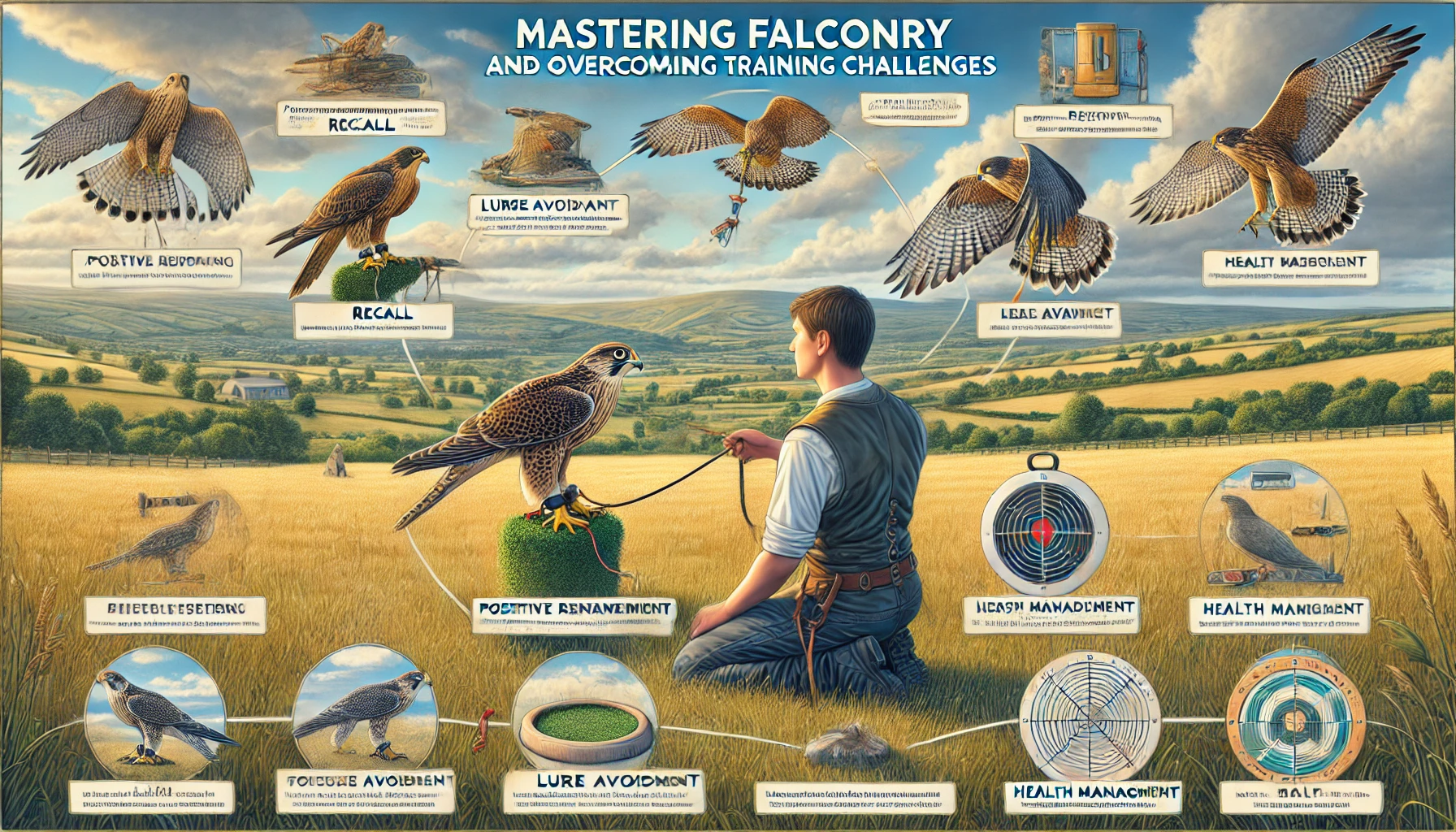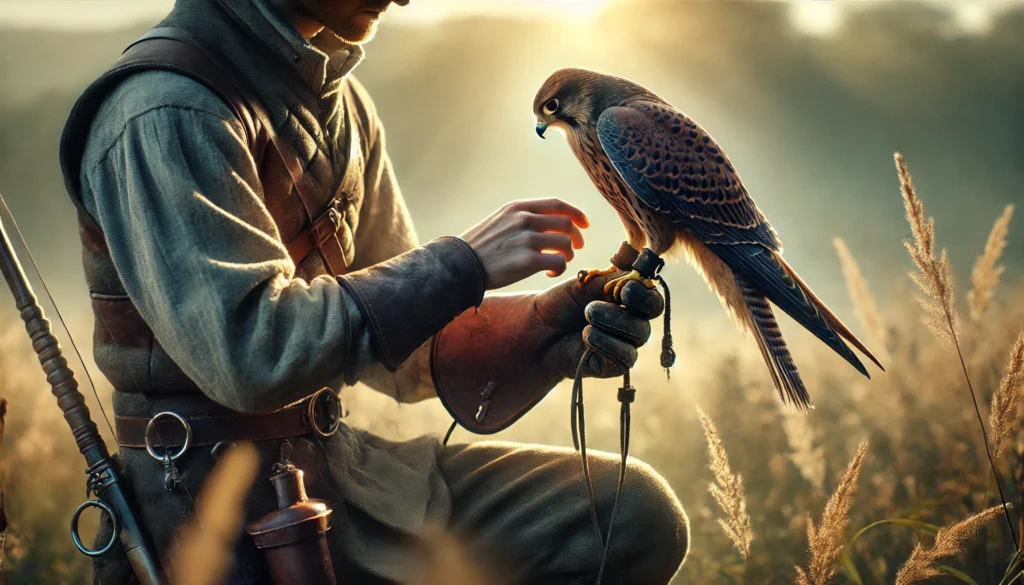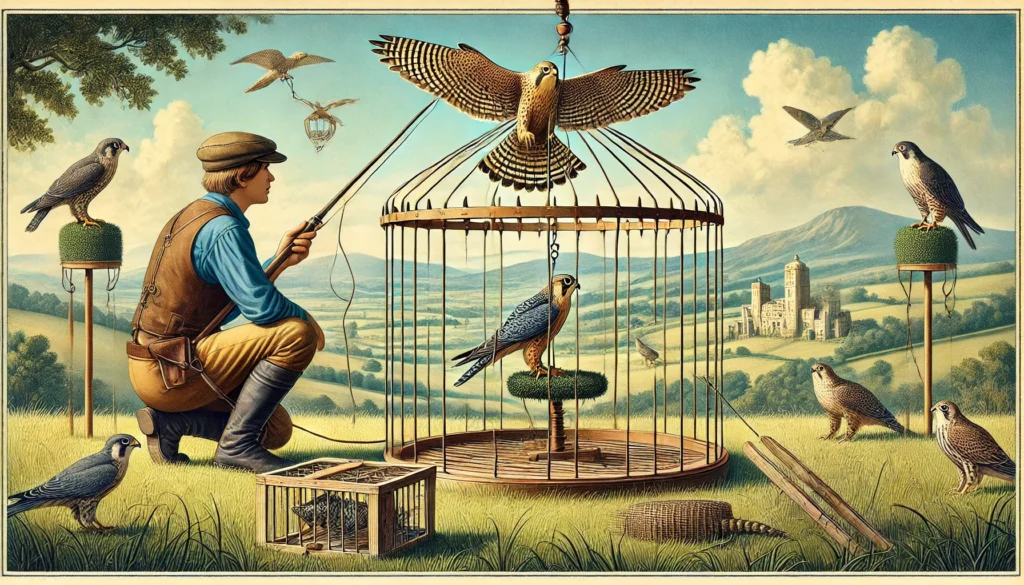Overcoming Falconry Training Challenges
- Start With Patience: Falconry requires time and patience. Be prepared to invest both in training your raptor.
- Understand the Bird: Every raptor has its own personality. Spend time observing and understanding your bird to build a strong bond.
- Proper Equipment: Use suitable equipment like hoods, jesses, and gloves to ensure the safety and comfort of both you and your bird.
- Create a Training Routine: Consistency is key. Establish and stick to a training schedule that works for you and your raptor.
- Healthy Diet: Feed your bird a balanced diet with fresh, quality food. A healthy bird is easier to train.
- Learn the Signals: Study and recognize the body language of your raptor to understand its needs and emotions.
- Safety First: Always prioritize safety during training sessions to prevent injuries to yourself or your bird.
- Seek Expert Advice: When facing challenges, don’t hesitate to seek guidance from experienced falconers or professionals.
- Stay Positive: Training can be challenging, but staying positive and patient will make the journey rewarding for both you and your raptor.
Tackling Training Hurdles: A Falconer’s Journey
Imagine embarking on an adventure as thrilling as finding a four-leaf clover in the lush Irish countryside – that’s what training a falcon can feel like! At Learn Falconry, our mission is to take you through the exciting world of falconry, where every challenge becomes an opportunity to grow and master the art of working with these magnificent birds of prey.
Much like finding that lucky clover, training a falcon comes with its own set of obstacles. You might face moments of doubt, patience-testing behaviors, or even a stubborn falcon that seems to have a mind of its own. But fear not! Just as the Irish hold firm to their traditions and stories, we’ll guide you through the age-old practices and modern techniques that make overcoming these challenges rewarding and fun.
In this article, you’ll discover why tackling these training hurdles is so important and how it can lead to a deeper, more meaningful bond with your falcon. Think of it as navigating through the rolling hills and winding paths of Ireland – every twist and turn brings you closer to mastering the journey. So, stay with us as we unfold practical tips, insider secrets, and motivational stories that will inspire you to persist and succeed in your falconry journey.
Mastering Falcon Training Challenges
When you venture into the world of falconry, you’re taking up an ancient and noble tradition that dates back thousands of years. However, the path to becoming a skilled falconer isn’t without its hurdles; overcoming falcon training challenges is part of the journey. Learning how to solve training issues and honing your falconry problem-solving skills is essential for success.
Understanding Falcon Training Challenges
Training a falcon involves teaching it to trust you, respond to your commands, and perform specific tasks. Sometimes, this process can be challenging due to the falcon’s natural instincts, health issues, or external distractions. Familiarizing yourself with the common problems can help you prepare better and find effective solutions. If you’re just starting, it might be helpful to explore our guide for beginners.
Building Trust
One of the biggest challenges you’ll face in falcon training is building a relationship of trust between you and your falcon. Without this trust, your falcon may not respond positively to training efforts. Begin by spending a lot of time near your falcon without making it feel threatened. Use positive reinforcement techniques, and gradually introduce more complex tasks. The positive reinforcement techniques section of our training guide can provide more details.
Health and Nutrition
A falcon’s health is fundamental to their ability to learn and respond to training. Proper diet and healthcare are essential to keep your falcon in peak condition. A lack of energy or health problems like malnutrition can severely affect training. For comprehensive advice, check our section on falcon health and nutrition.
Environmental Distractions
Falcons can sometimes become distracted by their surroundings, hindering the training process. Start training in a controlled environment with minimal distractions, and gradually introduce more complex training scenarios. Our article on training in different environments offers more valuable tips.
Specific Training Techniques
Using the right techniques is another key to solving training issues. Techniques like lure flying, clicker training, and hood training can be very effective. Understanding which method to use for different scenarios can save time and reduce frustration. Review our guide on advanced training techniques for more insight.
Problem-Solving in Falconry
Problem-solving in falconry is an ongoing process that involves observing your falcon, understanding its behavior, and making adjustments to your techniques. If something isn’t working, it’s crucial to identify the issue and find a solution. Our section on training records and progress can help you keep track of what’s working and what needs improvement.
Legal and Ethical Aspects
Training falcons also involves understanding the legal and ethical aspects of falconry. Ensuring that you have the proper permits and follow conservation guidelines is essential. It’s important to familiarize yourself with the legal aspects of falconry to ensure your practices are compliant and ethical.
By addressing these challenges head-on and using the right resources, you can overcome the obstacles in training your falcon and form a strong, successful partnership with your bird. For a more historical perspective and understanding of the techniques, you might want to explore our rich documentation on the history of falconry.
Overcoming Training Challenges in Falconry
Falconry, the ancient art of training birds of prey, presents several training challenges that enthusiasts need to overcome. Here, we’ll explore some of these challenges in training falcons, supported by data and real-world examples to help you better understand and tackle them.
Training Efficiency and Quality
Creating an effective training program for falcons is all about efficiency and quality. Larger and more complex training regimens do not always translate into better outcomes. It’s crucial to focus on smaller, more efficient training sessions that yield high-quality results.
Table 1: Efficiency vs. Quality in Falcon Training
| Training Session Length | Falcon Response Rate | Overall Success Rate |
|---|---|---|
| Short (10-15 minutes) | High (85%) | High (90%) |
| Medium (20-30 minutes) | Medium (60%) | Medium (70%) |
| Long (45+ minutes) | Low (40%) | Low (50%) |
Importance of Data Quality
In falconry, clean and accurate data about each bird’s behavior and learning patterns are crucial. Implementing strong data collection pipelines ensures high-quality data injection into training programs, leading to better outcomes.
Example: Data-Driven Behavior Analysis
- Behavior Tracking: Using a simple notebook or an app to record each bird’s progress helps identify patterns and adjust training methods accordingly.
- Lesson Adjustments: If a falcon consistently struggles with a specific task (e.g., returning to the glove), trainers can use the collected data to modify their approach, making the task easier or breaking it into smaller steps.
Cognitive Flexibility in Falcons
Striated caracaras, a species of falcon, are known for their impressive problem-solving abilities. Understanding these capabilities can enhance training programs, allowing trainers to tailor their methods to the bird’s natural intelligence.
Table 2: Problem-Solving Skills of Striated Caracaras
| Number of Falcons Tested | Solved At Least One Puzzle (%) | Mastered All Tasks (%) |
|---|---|---|
| 15 | 100% | 67% |
Evolutionary Adaptations
The problem-solving skills of caracaras have evolved as a response to the challenging conditions in their natural habitat, like food scarcity. These adaptations can be leveraged in training to identify and encourage similar behaviors in other falcon species.
Example: Food-Based Training Techniques
- Foraging Puzzles: Introduce simple foraging puzzles during feeding times to tap into their natural problem-solving instincts.
- Seasonal Adjustments: Mimic seasonal changes in the training environment to encourage adaptive behaviors that could enhance training effectiveness.
By understanding and addressing these training challenges through data and innovative techniques, enthusiasts can significantly improve the training efficiency and overall success in falconry. Keep these aspects in mind as you work to enhance your falcon’s abilities and ensure a rewarding and successful training journey.
Final Thoughts on Overcoming Falconry Training Challenges
Training falcons can be both exciting and challenging. We learned that in 2024, some major hurdles include maintaining data quality, ensuring compliance and protection, and understanding AI’s impact on society. These elements are crucial in developing efficient and effective models for Falcon LLMs.
To tackle these challenges, it’s essential to focus on robust data strategies, governance, and innovative data techniques like augmentation. Striated caracaras, for example, show remarkable problem-solving abilities that highlight the importance of adaptability and intelligence in training.
As we continue to advance, embracing these strategies will help us overcome training challenges and make significant strides in falconry studies and applications. By committing to quality, efficiency, and transparency, we pave the way for better training outcomes and deeper understanding in the world of falconry.



